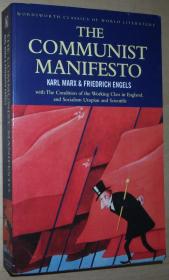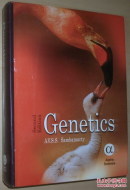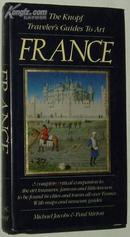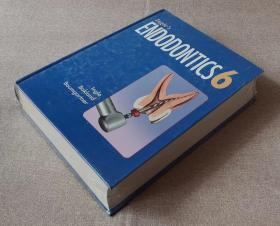
◇英文原版书 莫斯科保卫战 The Greatest Battle: Stalin, Andrew Nagorski
¥ 130 八五品
仅1件
作者Andrew Nagorski
出版社不详
ISBN9780743281119
出版时间2008
装帧其他
货号通35
上书时间2014-08-27
- 在售商品 暂无
- 平均发货时间 17小时
- 好评率 暂无
- 店主推荐
- 最新上架
商品详情
- 品相描述:八五品
- 8.5成新
- 商品描述
-
The Greatest Battle: Stalin, Hitler, and the Desperate Struggle for Moscow That Changed the Course of World War II [Paperback]– 2007
by Andrew Nagorski(Author)
Paperback:384 pages
Publisher:Simon & Schuster; Reprint edition (November 4, 2008)
Language:English
ISBN-10:074328111X
ISBN-13:978-0743281119
Product Dimensions:0.9 x 5.4 x 8.2 inches
Shipping Weight:12.8 ounces
From Publishers Weekly
Journalist and foreign correspondent Nagorski combines published sources and interviews in this history of what he calls the largest, deadliest and most decisive battle of WWII. The often cited Russian winter did not account for the battle\'s outcome, he asserts, nor did German military overstretch. The tide wasn\'t turned by Hitler\'s increasingly erratic command decisions either. Moscow, Nagorski argues, was won by the Soviet government, the Red Army and the Russian people. Stalin\'s decision to stay in the city provided a rallying point—otherwise his mistakes as a commander and his brutality as head of state might have handed the Germans a victory they couldn\'t win in combat. A Red Army still learning its craft lost more than two million soldiers before Moscow, many of whom were victims of teenaged officers and obsolete weapons, failed tactical doctrines and logistical systems. Even the vaunted Siberian divisions were short of everything, including winter clothes, as they fought in sub-zero temperatures. Nor were Moscow\'s residents the united folk of Communist myth. Nagorski\'s sources luridly describe panic, looting and wildcat strikes as the Germans approached. Still, he concludes that whatever the shortcomings of Moscow\'s defenders, their deeds don\'t require heroic myth: the truth is honorable enough.(Sept.)
Copyright ? Reed Business Information, a division of Reed Elsevier Inc. All rights reserved.--This text refers to an out of print or unavailable edition of this title.
From Booklist
The war on the eastern front during World War II was the greatest land war in history, and it was unprecedented in its savagery and slaughter. Westerners usually think of the battle for Stalingrad as the obvious representation of that savagery. However, Nagorski, a senior editor at Newsweek, makes a convincing assertion that the battle for Moscow, which raged from September 1941 to April 1942, was the most destructive and most important battle of the war. The broad outlines of Nagorski\'s chronicle are familiar, including the rapid initial advance of the Germans after the invasion of June 1941, the early snows that bogged down the advance, and the brilliant counterattack of the Siberian reserves that drove the Germans back from the gates of Moscow. What makes Nagorski\'s account special are his skill at conveying the devastating human costs of the conflict and his integration of individual experiences with the broader strategic goals of each side. Freeman, Jay
相关推荐
-

◇英文原版书 莫斯科保卫战 The Greatest Battle: Stalin Andrew Nagorski
八五品北京
¥ 130.00
-

◇英文原版书 Communist Manifesto (Wordsworth Classics) 保正版
八品北京
¥ 66.00
-

◇英文原版书 Atlas of weather
九五品廊坊
¥ 46.00
-

◇英文原版书 Electronic Filter Simulation & Design 保正版
九品北京
¥ 670.00
-

MOSCOW【英文原版:莫斯科】
八品廊坊
¥ 150.00
-

MOSCOW【英文原版:莫斯科】
八品北京
¥ 150.00
-

◇英文原版书 The New Basics Cookbook
八五品北京
¥ 150.00
-

◇英文原版书 Applications of Anthropology: Professional
九五品北京
¥ 290.00
-
![◇英文原版书 Stir [Paperback] Christine Mansfield](https://www0.kfzimg.com/sw/kfz-cos/kfzimg/11671571/6c219e0004717453_s.jpg)
◇英文原版书 Stir [Paperback] Christine Mansfield
九品北京
¥ 200.00
-

◇英文原版书 Social Science Libraries: Interdisciplinary
九五品北京
¥ 170.00
— 没有更多了 —















![日文原版书 経営学演習 [単行本] 柴川林也 (編集) 日本经营管理学练习题问答题](https://www0.kfzimg.com/G01/M00/6C/2C/o4YBAFPPgNGAYOQFAAH4hdkTTkY895_s.jpg)



以下为对购买帮助不大的评价